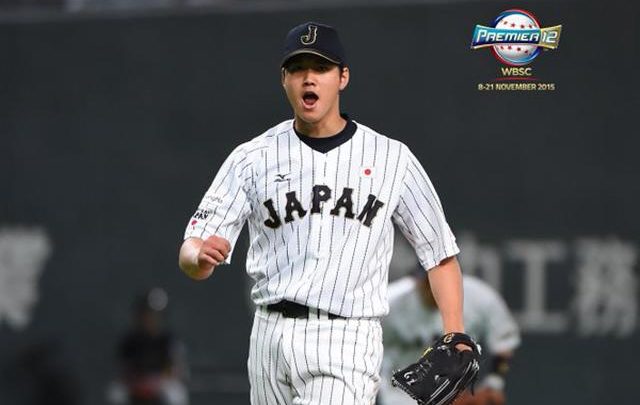
With Posting Agreement in Place, Ohtani’s Path to MLB All Clear
Whether the time was best kept by the tick of the clock or the swing of the collective, uh, egos of the parties involved, the wait is finally over and we are all systems go on Shohei Ohtani’s move to MLB. I’ll forgive you for not keeping up with the process as meticulously as I have, but now that we’re on the precipice of a conclusion, I figured you’d be interested in how everything went down.
The final hurdle to the two-way unicorn’s move to America centered around disagreements the MLB Players Association had with the Japanese posting system, which, oddly enough, didn’t even directly involve Ohtani. The posting system had expired and both of the leagues involved had agreed to grandfather it, but the proposals being set forth by NPB for future posting rules weren’t quite up to snuff.
The union was particularly prickly when it came to the idea of Japanese teams being able to “pull back” a posted player should he not command a deal that would earn his former team a big enough cut. Shoot, I’ve gotten ahead of myself. NPB had proposed a system under which their teams would receive a percentage of the MLB contract signed by a Japanese player.
Joel Sherman of the New York Post has a succinct breakdown of the new agreement in his Tuesday evening column on the penultimate step in this whole process.
Beginning Nov. 1, 2018, a three-year posting agreement between MLB and NPB begins. In that agreement, a Japanese team would receive 25 percent of a signing bonus if one of its players agrees to a minor league pact with an MLB club.
If a player signs a major league contract, a Japanese team will receive 20 percent of the total of the contract plus all earned bonuses, buyouts on unexercised options and full amount of option years on guarantees up to $25 million, 17.5 percent of deals between $25 million and $50 million, and 15 percent for any pact over $50 million. Thus, if a player signed a $100 million deal, his Japanese club would receive $15 million. Having a higher percentage for under $25 million – up from 15 percent – was a key compromise to get NPB to agree to this tentative new deal.
I believe the date listed above should actually be December 1, which is when MLB owners are set to vote on whether to ratify the proposal (though the old agreement expired on Oct. 31, so this could be retroactive). It’s expected the owners will okay the deal, at which point the Nippon Ham Fighters will have to officially post Ohtani, who will then have a mere 21 days to decide on a new team. That means one lucky group of fans will have a shiny new present under the tree with a couple days to spare before Christmas.
The other compromise that came out of this hurried summit was that Japanese teams can only post players between November 1 and December 5, after which the player will have 30 days to sign with his new team. So that’s cool, but let’s get back to the here and now.
Sherman notes that the Cubs are one of the favorites to land Ohtani, along with the Dodgers, Rangers, Mariners, and Yankees. The latter of those just made a move to acquire an additional $250,000 in international bonus pool money, presumably in an attempt to better position themselves for a run at Ohtani. But as we’ve mentioned many times here, it’s unlikely that a guy who is passing up a huge contract would be swayed by such a paltry sum.
At the same time, it’s good for teams to be as publicly above-board as possible given everything that just went down with the Braves. This is a very different situation than the one that saw Atlanta lose 12 international prospects and receive a de facto death penalty in the next IFA period for providing various impermissible benefits to signees, but you can be sure other teams will be wary of a similar fate if they’re accused of funny business with Ohtani.
And lest you think I’m just wildly connecting disparate dots here, some baseball execs have already expressed fears that their colleagues will point fingers once Ohtani signs. There’s such cognitive dissonance with the idea that a player would forego a monster contract that these baseball bigwigs figure the team that lands him surely circumvented the rules to do so. Not that that’ll stop anyone from pursuing him.
As much as I’ve enjoyed following each twist and turn in this saga, it’s pretty exciting to see it advancing. And if things go as planned, the pace is going to be cranked up to 11 come December. And then it’s going to hit warp speed a couple weeks later when when MLB descends upon Orlando for the Winter Meetings. Man, that’s going to be insano-cheez.

